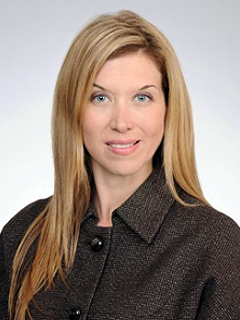Weekly TWIST recap
Welcome to TWIST for the week of March 25, 2024 featuring Sarah McGahan from KPMG’s Washington National Tax state and local tax practice.
Today we are covering a sales tax decision from the Louisiana Board of Tax Appeals and a property tax case from Wisconsin. We are also releasing our TWIST Q checklist that includes corporate income tax developments that have occurred in the first quarter of 2024.
The Louisiana Board of Tax Appeals recently concluded that a cable television provider was not liable for parish sales taxes on its sales of Video on Demand and Pay-Per-View programming. The matter involved several parishes that had audited the taxpayer and issued separate assessments that were consolidated before the Board. Under Louisiana law, there is a prohibition against imposing state and local sales taxes on amounts collected from a cable television subscriber for regular cable service. The Board rejected the parishes assertion that the transactions were akin to the sale or rental of tangible personal property and found that the On Demand and Pay-Per-View programming was regular cable service.
A Wisconsin appellate court recently addressed whether a manufacturer qualified for a property tax exemption for machinery, tools, and patterns not used in manufacturing. Under Wisconsin law, all property is subject to property taxation unless an exemption applies. While most property is assessed locally, manufacturing property is assessed by the Department of Revenue. While the taxpayer’s property was manufacturing property subject to assessment by the Department of Revenue, certain of the property was not used directly and exclusively in the manufacturing process; it was this property that the taxpayer argued was exempt. Relying on legislative history, the court concluded that the legislature intended the exemption for machinery, tools and patterns not used in manufacturing to apply only to non-manufacturing property that was locally assessed.
TWIST-Q
Read our summary of state and local tax legislative activity that took place during the first quarter of 2024.
Wisconsin: Manufacturer not Eligible for Property Tax Exemption
A Wisconsin appellate court recently addressed whether a manufacturer qualified for a property tax exemption for machinery, tools, and patterns not used in manufacturing. The taxpayer manufactured cheese at a facility in Wisconsin. Under Wisconsin law, all property is subject to property taxation unless an exemption applies. While most property is assessed locally, manufacturing property is assessed by the Department of Revenue. While the Department assesses manufacturing property, it also administers an exemption for certain machinery and equipment that is exclusively and directly used in a manufacturer’s production process. The dispute at issue addressed a different exemption found in Wis. Stat. § 70.111(27) that applied to “machinery, tools, and patterns, not including such items used in manufacturing.” Specifically, the issue was whether the taxpayer was entitled to this exemption for machinery, tools and patterns that were used in manufacturing but that did not meet the “directly and exclusively” requirement. In other words, the taxpayer’s position was that it could qualify for the exemption for property that did not qualify for the manufacturing property tax exemption. The Department, on the other hand, argued that the exemption for machinery, tools, and patterns not used in manufacturing applied to only non-manufacturing property that was subject to local assessment. The dispute eventually made its way to the appeals court. Before the court, the taxpayer argued that the Tax Appeals Commission correctly concluded that § 70.111(27) exempts machinery, tools and patterns, regardless of who owns or uses it, so long as it is not used in the manufacturing process.
The court concluded that the phrase “used in manufacturing” found in Wis. Stat. § 70.111(27) was ambiguous because it was undefined and was capable of being understood differently by reasonable people. On one hand, it could be interpreted to apply to property not directly used in the production process. It could also be interpreted to exclude any manufacturing property subject to assessment by the Department. Due to the ambiguous nature of the language, the court looked to the legislative history surrounding the enactment of the Wis. Stat. § 70.111(27) exemption and concluded that the exemption did not apply to machinery, tools and patterns assessed by the Department. Importantly, documents and affidavits drafted by the Legislative Fiscal Bureau had estimated the separate costs of extending the Wis. Stat. § 70.111(27) exemption to both Department assessed manufacturing property and locally assessed non-manufacturing property. This was important because the state was required to compensate local governments for lost property tax revenues resulting from the exemption. The documentation showed that the legislature ultimately opted to exempt non-manufacturing property only and the legislation adopting the exemption had the corresponding fiscal appropriation. The court concluded that the taxpayer did not qualify for the Wis. Stat. § 70.111(27) exemption. Please contact John Vann with questions on Wisconsin Department of Revenue v. Master's Gallery Foods, Inc.
Meet our podcast team

Discover more podcast episodes in this series
Sign up for tax topics of interest
Receive timely, topic-specific content on tax topics that interest you.



